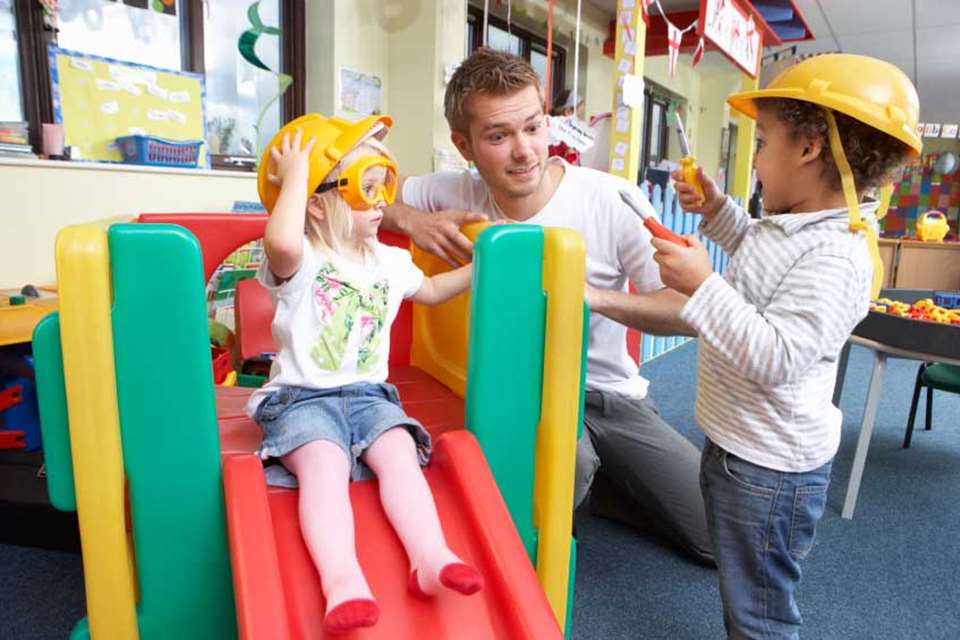Children's centres improve parenting for poor families
Friday, December 18, 2015
Children’s centres in poor areas help disadvantaged families to develop parenting skills, improve mothers’ mental health and children's learning at home, research shows.

However, although the study showed that children’s centres can help to improve the lives of the most vulnerable families in the poorest parts of the country, they cannot be expected to solve all the problems families face in growing up in disadvantaged neighbourhoods, the researchers said.
The report on the impact of children’s centres for families is the latest from a six-year research study, the national Evaluation of Children’s Centres in England (ECCE), which was commissioned by the Department for Education in 2009, to look at different approaches to managing and operating children’s centre services.
Families that were significantly less well off financially also had ‘significantly poorer family functioning, poorer health, and experienced a greater number of stressful life events’ than other families.
Perhaps not surprisingly, better-funded children’s centres were more successful in improving children’s social skills and how well families functioned, compared with centres where staffing levels and services were cut. Centres that had more resources also seemed to attract the most disadvanatged families in the local area.
The results analyse data from interviews with 2,600 families and 300 staff at 117 phase one and two children’s centres, most of which did not provide childcare. Parents were interviewed three times, when their child was aged between one and three.
Thirteen outcomes were measured for the family, mother, and child, including child behaviour and vocabulary, mother’s health, and parent-child interaction, when the children were aged three.
Researchers studied the finances and staffing of centres from 2011 to 2012.
The report warns that since the research was carried out further budget cuts have led to fewer services and staff, with re-organisations and closures of centres affecting services in many local authority areas.
'The results of the impact analyses reveal that children's centres can promote better outcomes, especially for family functioning linked to parenting; but these positive effects are not as strong as some of the adverse effects of background disadvantage,' the report said.
It added that children's centre services have the potential to improve the effects of disadvantage but 'while they may help to reduce the equity gap, the results suggest that on their own children's centres cannot be expected to overcome the adverse effects of being part of a disadvantaged family living in a disadvantaged neighbourhood.'
Key findings:
- organised activities, such as 'stay and play' were linked to small but significant reductions in parents' stress levels, improvements in mothers' mental health and better home learning environments for children;
- centres did less well at helping unemployed parents find jobs and improving children's health;
- children who went to school-led centres did better at learning vocabulary, while those based at centres run by other organisations improved children's reasoning skills;
- there is a link between improvements in children's cognitive and social development with family use of childcare, which children's centres promoted to disadvantaged families;
- the most disadvantaged families went to children's centres five months longer, on average, than better-off families, and were less likely to use other services outside children's centres;
- children's centre staff were often concerned that they did not have the training and experience to help families with complex needs, including mental health problems.
Commenting on the research, principal investigator Professor Pam Sammons from Oxford’s Department of Education, said, ‘We find that targeting extra services towards disadvantaged families in disadvantaged neighbourhoods promotes better parenting, health and social skills.
‘Children’s centres support parents and families, helping to mitigate the powerful effects of disadvantage on life chances. It is important to build on these findings to ensure that such benefits are not lost.’
Co-investigator Professor Kathy Sylva, also from the University of Oxford, added, ‘Earlier research from the same study showed how popular centres are amongst residents in disadvantaged neighbourhoods.
‘Staff told us that the open-access, walk-in activities encouraged vulnerable families to take part because they did not feel there was a stigma attached to using the centres. Preventative work with families can head off more serious problems that could otherwise put them on the lists of social welfare agencies.’
Dr Emily Tanner, consortium lead from NatCen Social Research, which carried out the interviews for the research, said, ‘This report marks an important milestone in the six-year evaluation, providing insights that can help improve services for parents and children.’
- Read the report here







